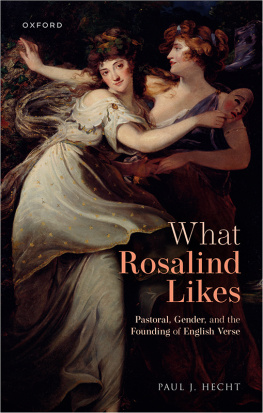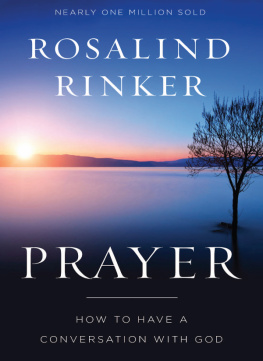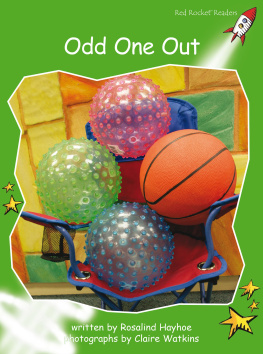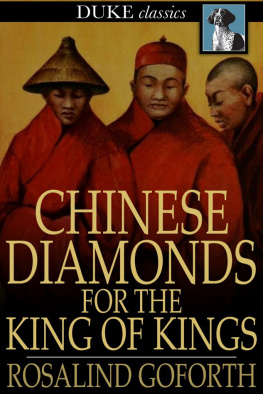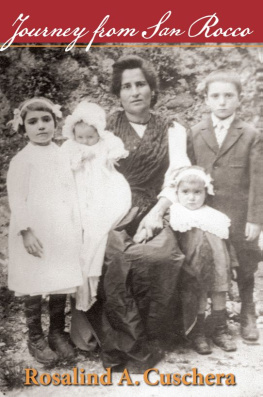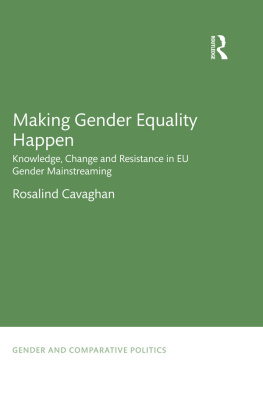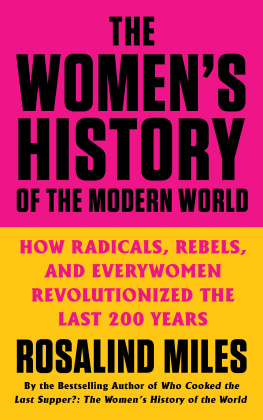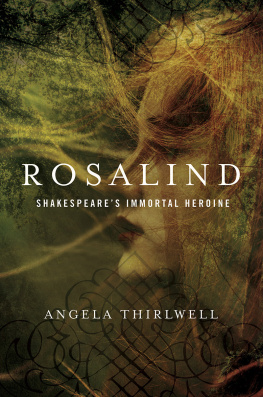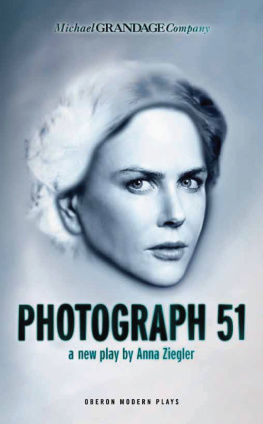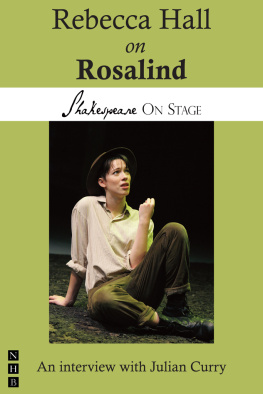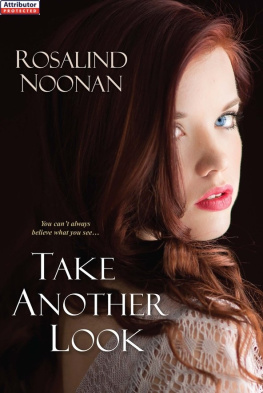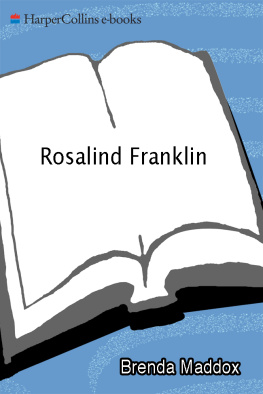

Great Clarendon Street, Oxford, OX2 6DP,
United Kingdom
Oxford University Press is a department of the University of Oxford. It furthers the Universitys objective of excellence in research, scholarship, and education by publishing worldwide. Oxford is a registered trade mark of Oxford University Press in the UK and in certain other countries
Paul J. Hecht 2022
The moral rights of the author have been asserted
Impression: 1
All rights reserved. No part of this publication may be reproduced, stored in a retrieval system, or transmitted, in any form or by any means, without the prior permission in writing of Oxford University Press, or as expressly permitted by law, by licence or under terms agreed with the appropriate reprographics rights organization. Enquiries concerning reproduction outside the scope of the above should be sent to the Rights Department, Oxford University Press, at the address above
You must not circulate this work in any other form
and you must impose this same condition on any acquirer
Published in the United States of America by Oxford University Press
198 Madison Avenue, New York, NY 10016, United States of America
British Library Cataloguing in Publication Data
Data available
Library of Congress Control Number: 2022930876
ISBN 9780192857200
DOI: 10.1093/oso/9780192857200.001.0001
Printed and bound by
CPI Group (UK) Ltd, Croydon, CR0 4YY
Links to third party websites are provided by Oxford in good faith and for information only. Oxford disclaims any responsibility for the materials contained in any third party website referenced in this work.
For Heather
Acknowledgements
This book has been a long time coming and I owe debts of gratitude to many people, as well as several institutions; I am pleased to acknowledge a number of them here.
I have been lucky to have had wonderful teachers who encouraged my interests and obsessions. These include those who introduced me to poetry and literary possibilities: Ransom Griffin, David Sofield, William Pritchard, April Bernard, Caryl Phillips, Leslie Katz, Andrew Parker, and Karen Sanchez-Eppler. My studies continued with A. R. Ammons and Robert Morgan, and with Jonathan Culler, Reeve Parker, Roger Gilbert, Carol Kaske, and especially with Scott McMillin and Debra Fried. My dissertation advisor and lifelong mentor, Gordon Teskey, did his best to feed my desire to consume all of world literary history and theory; I am grateful for his patience and encouragement through the years. My knowledge of Roman poetry, such as it is, as well as shining examples to me of scholarship and devotion to teaching, I owe to the much-mourned Reginald Foster, and to Danuta Shanzer.
I am also grateful for generous and brilliant colleagues, many of whom have also been mentors in ways large and small. At Kalamazoo I met a supportive community of Spenserians and Sidneyans, including Anne Lake Prescott, Melissa E. Sanchez, Jeff Dolven, David Wilson-Okamura, Andrew Escobedo, Beth Quitslund, Ilona Bell, and Mary Ellen Lamb. At the Shakespeare Association I gained support from Timothy Billings, Kimberly Anne Coles, Stephen Guy-Bray, Richard Rambuss, Colleen Ruth Rosenfeld, Peter Holland, Russ McDonald, and Marion Wynne-Davies. My brief time in North Carolina gave me rich friendships with Louise Gossett, Allen Mandelbaum, Charles Ross, and Jeff Holdridge. I have benefitted enormously from the welcoming and encouraging community of the Chicago Area Renaissance Faculty Seminar, to whom I presented an early version of my work on Rosalind. I am particularly grateful to Richard Striers benign leadership of this seminar, and the feedback from its rich and varied membership, including Bradin Cormack, William West, Jeff Masten, Suzanne Gossett, Michael Shapiro, Clark Gilpen, and Andrew Cutrofello. David Bevington was a frequent presence at the seminar, and the loss of his endless hospitality and energy I feel especially keenly. I am likewise grateful for the larger Chicagoland scholarly community, including Paula McQuade, Caterina Mongiat-Farina, Lara Crowley, Timothy Crowley, Timothy Harrison, David Simon, Megan Heffernan, and James Knapp.
A number of institutions have supported this work, including the Newberry Library, which gave me opportunities to try out ideas on Chicago area teachers, and also the opportunity to develop a digital exhibition. Much of my research depended on the University of Chicagos Regenstein Library with its splendid collections and expert staff. I am grateful to the Huntington Library for help in accessing the papers of Zo Akins during the pandemic. Purdue University Northwest gave me supportive colleagues and supervisors, including particularly Michael Lynn, Colette Morrow, Angie Prinz, Liz Rodriguez, and Elaine Carey; I was also awarded a sabbatical leave that was crucial to the early drafting and development of the project, as well as consistent support and confidence in my research and writing in the years that followed. Fairleigh Dickinson University Press, and Rowman and Littlefield, gave me and my colleague J. B. Lethbridge a marvelous opportunity to press the limits of an essay collection in which a number of ideas for this project were in embryo. A conversation almost a decade ago with Jacqueline Norton of Oxford University Press gave me substantial encouragement through its long development. Since completing the manuscript, I have benefitted immensely from the expert guidance of Eleanor Collins and Karen Raith as well as Aimee Wright. I am also grateful for the many improvements to the text suggested by my project manager Hariharan Siva and copyeditor Rowena Anketell. I am especially grateful for the insightful and generous reports from my two readers for Oxford, one anonymous, and the other from Melissa E. Sanchez; the book is much improved through their detailed feedback and rich suggestions.
The book has also benefitted from many scholars whom I have never had the opportunity to meet but who, more and more, I realize have paved the way for my growth as a reader and writer. They include scholars in feminist and queer studies, who created those studies from whole cloth in the midst of skepticism, resentment, and outright resistance. Indeed, my growth as a scholar seems as much a gradual deepening and widening of my sense of those whose sacrifices and small victories have made this work possible.
I want to thank the students who participated in ten years of productions of early modern drama, especially Holly Trott, Aram Arden, Jeremy Harris, Eileen Long, Lillianna Pollnow, and Alexis Ulrich. My colleagues Jesse Cohn, Bethany Lee, Sara Gerend, and Jason and Lilliana Curtis, made innumerable contributions as well. At an earlier stage for me were formative experiences with Shakespeare and Company, and Jonathan Epsteins marvelous sonnet workshops, as well as unforgettable experiences with Jeremy Lopez, Genevieve Love, and the casts of various non-Shakespearean drama projects in the early 2000s. I am also deeply grateful to Gerry Peters and the Canterbury Theatre as well as the Chicago arts community that supported our shows in Indiana with their experience, creativity, and generosity. In particular, I thank Rick Gilbert, Ariane Dolan, Rob Clearfield, Ada Palmer, and Lauren Schiller.
I have been lucky in friendship as well, with many who have provided mentorship too at various stages of this project and my career. Jake Adam York, my lost friend, is among those I most would like to give a copy of this book to provoke and bemuse him. Jeremy Lopez read a very early draft of a chapter and gave detailed advice and encouragement at several stages of its evolution. Matthew Harrison joined me in doing battle with the forces that prevent books from being written. Many conversations with Rachel Hile and Jeff Turco also kept me moving forward at various stages. And then there are my friends and extended family, including Donna Ng, Amber and Marlon Kuzmick, Paul and Cordelia Gover and Jasmine and my goddaughter Eleanor, Jonas Kellner, Tatyana Mamut, Joseph Braude, Will Hacker, Dina Bishara, Ron Corthell, Laura Bartolo, Susan Bussey, Emanuela Binello, and my sisters Suzanne Juhasz, Kathy Lawrence, my niece Alexandra Juhasz, my New Mexico family, Suzanne and David Fielding, Erin White and Lily Brooks. I know how much pleasure it would give my parents, Philip and Alcee, to see this work now entering the world, and I also have the keen pleasure of knowing that it would not much surprise them, such was their love and confidence. But my greatest debt I save for last, for my great love and partner, my wife Heather, who created with me the space for this book to be realized, and welcomed into our lives those who have given us endless love and support: Winnie, Franny, Agatha, Jeannie, Dasha, and Frankie. I dedicate this book to her.
Next page
